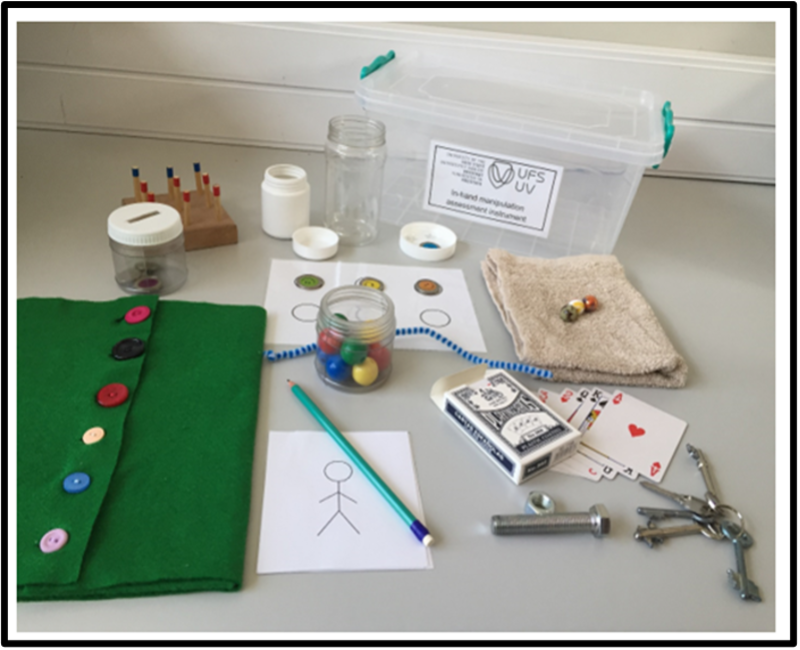Face- and content validity of the University of the Free State In-Hand Manipulation Assessment Instrument (UFS IHMAI) for children in South Africa
DOI:
https://doi.org/10.17159/2310-3833/2024/vol54no2a2Keywords:
Psychometric properties, instrument development, psychometric testing, standardised assessmentAbstract
Introduction: No standardised assessment instrument that covers all the components of in-hand manipulation (IHM) with evidence of instrument development and psychometric properties appropriate for South African children is currently available for occupational therapists. The University of the Free State In-Hand Manipulation Assessment Instrument (UFS IHMAI) is in the process of development to gain recognition as a standardised assessment instrument for children in South Africa. This article reports on the first and second stages of the face- and content validation process of the UFS IHMAI.
Method: A quantitative descriptive study design with a convenient sampling method was used. Participants provided their expert judgment by completing an EvaSys© online questionnaire.
Results: Fifty-five occupational therapists with experience in paediatric hand function, and registered with the HPCSA and OTASA participated. The participants agreed (above 80% consensus) that the instrument's content is relevant and representative to assess all components (separately and as a whole) of IHM that it was intended to measure. Participants' comments and practical recommendations will form an important knowledge-base for the instrument developers to use in the third stage of content validity, namely revising and refinement.
Conclusion: The results confirmed the face- and content validity of the UFS IHMAI and supported the further development and psychometric testing of the assessment instrument for children in South Africa.
Implications for practice:
This article builds upon prior studies in which therapists in South Africa have recognised the necessity for an in -hand-maniputation (IHM) assessment. It offers a concise overview of instrument development theory and delineates the iterative process employed in developing the first draft of the University of the Free State In-Hand Manipulation Assessment Instrument (UFS IHMAI). Additionally, this article furnishes background details regarding the proposed instrument's content, administration, and scoring guidelines. It also incorporates therapists’ perspectives as end-user, providing informed perceptions and consensus on the content validity of the proposed instrument. The suggestions provided by the participating therapist working within the South African context can be employed by the researchers to inform the revision, reconstruction, and refinement of the instrument. Subsequently, the revised version will undergo another round of content validity testing (with experts in instrument development, and in the field) and other psychometric testing. As instrument development is an iterative and ongoing refinement process, the implication of this research might only become apparent after further studies.
Downloads
References
See PDF for full list of references

Downloads
Published
Issue
Section
License
Copyright (c) 2024 South African Journal of Occupational Therapy

This work is licensed under a Creative Commons Attribution-NonCommercial-NoDerivatives 4.0 International License.
How to Cite
- Abstract 195
- PDF 116
- Plagiarism Report 10



.png)